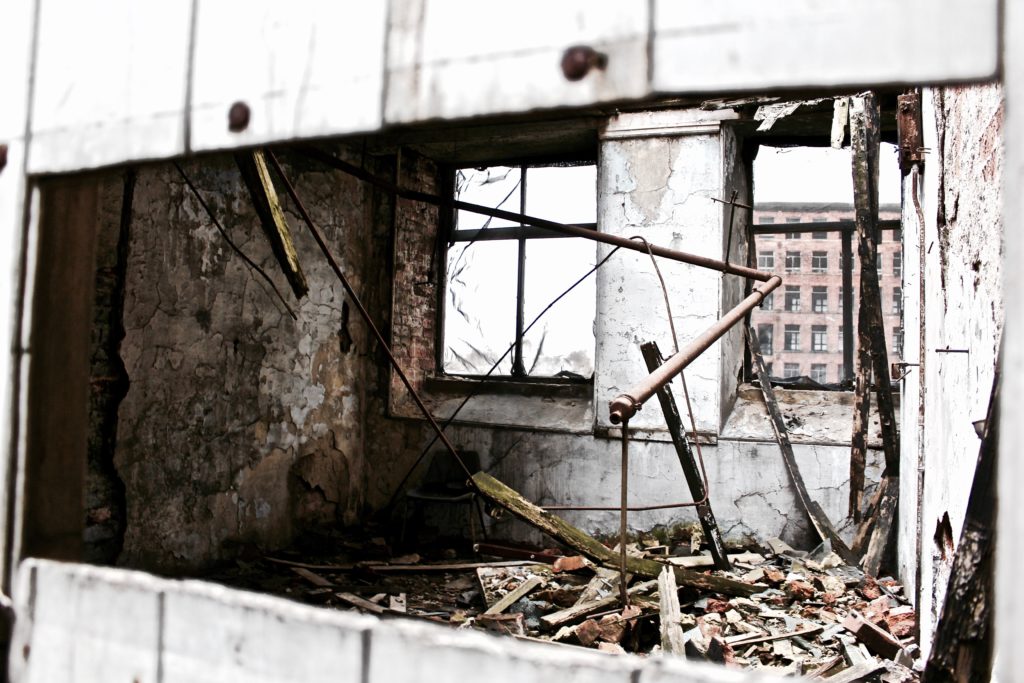The rain just ending, I look through a chain link fence at the demolition of another shopping center. Half gone, the buildings huddle in the rutted parking lot. The little market’s plate glass windows are punched out and only checkered linoleum is left in the Laundromat. The gas pumps have been hauled off from the corner station, replaced with a mountain of crumbled tar, and the restaurant is torn down now except for one chimney that rises like a bombed-out remnant in an old war photo.
Truth is, I hardly shopped here anymore. It felt dated, doomed. Everything degrading in those last years. The vacant shops left unrented, and the pavement sinking more after each storm.
With the walls torn away, the sky has filled the space between the thrift store and the druggist. And in front of the bakery, the shrubbery’s upturned, roots exposed. The ovens and metal racks are long gone, only the narrow counter left, its framework austere, almost dignified. Even the long legs of the huge metal sign in front have collapsed, buckled over. It’s face down in the weeds, like some ancient struggle was staged, then abandoned.
It isn’t as if anyone would miss this little strip. But my son and I had passed it every day on the way to the park. He was barely three, pedaling a big wheel under the striped awnings. He’d race the design of green and white tiles set below the windows in a wave of motion; the afternoon sun rolled out in a carpet of light. Now tiles lie in a rubble of cement and wire, whole sheets fallen over, like beetles helpless on their backs.
The clouds are finally lifting and the mountains come into focus, sharp-shadowed in the distance while shafts of light brush across the ragged expanse; a little like an old oil painting, oddly biblical. And here come two boys, riding bikes across the muddied ground, rearing their front tires up as if on horseback, calling to each other across the emptied landscape.
